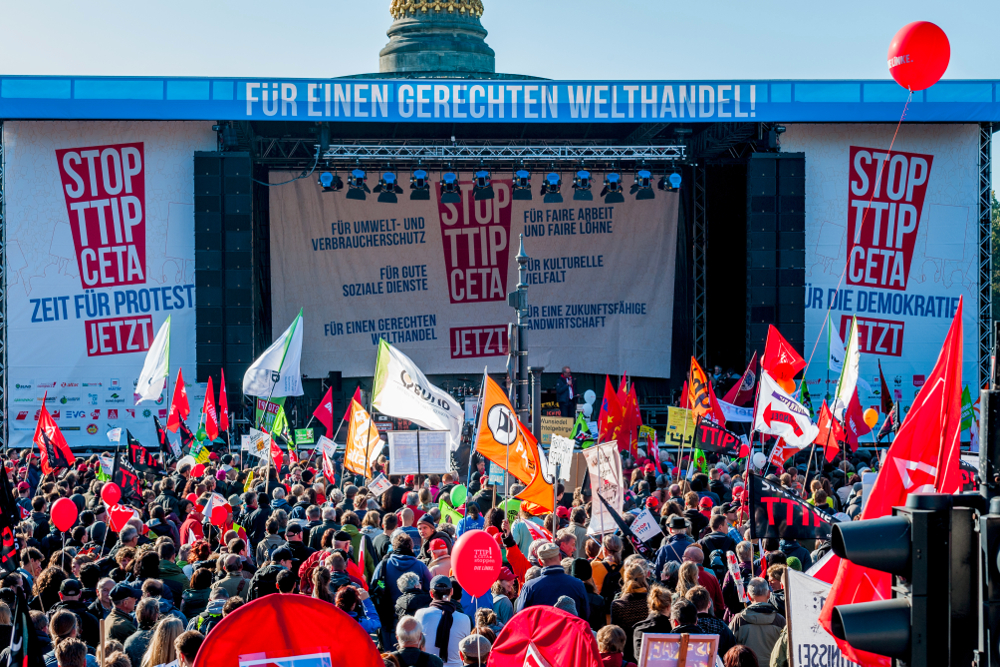
The TTIPing Point: Protests Threaten Trans-Atlantic Trade Deal
As the battle over TTIP was lost, Angela Merkel feigned resolution yet one more time. "We consider a swift conclusion to this ambitious deal to be very important," her spokesperson said on her behalf on Monday. And this is the government's unanimous opinion.
But the German population has a very different one. More than two-thirds of Germans reject the planned trans-Atlantic free trade agreement. And even in circles within Merkel's cabinet, the belief that TTIP will ever become a reality in its currently planned form is disappearing.
May 6, 2016 | Source: Spiegel Online | by Dinah Deckstein, Simone Salden and Michaela Schießl
As the battle over TTIP was lost, Angela Merkel feigned resolution yet one more time. “We consider a swift conclusion to this ambitious deal to be very important,” her spokesperson said on her behalf on Monday. And this is the government’s unanimous opinion.
But the German population has a very different one. More than two-thirds of Germans reject the planned trans-Atlantic free trade agreement. And even in circles within Merkel’s cabinet, the belief that TTIP will ever become a reality in its currently planned form is disappearing.
That’s because on Monday morning, Greenpeace published classified documents from the closed-door negotiations. Even if the papers only convey the current state of negotiations and do not document the end results, they still confirm the worst suspicions of critics of TTIP.
The 248 pages show that bargaining is taking place behind the scenes, even in areas which the EU and the German government have constantly maintained were sacrosanct. These include standards on the environment and consumer protection; the precautionary principle, a stricter EU policy that sets high hurdles for potentially dangerous products; the legislative self-determination of the countries involved, etc. Even the pledge made on the European side that there would be no arbitration courts has turned out to be wishful thinking. So far, the Americans have insisted on the old style of arbitration court.
The result is that Merkel’s grandly staged meeting with US President Barack Obama in Hanover eight days earlier had been nothing more than a show — one aimed at hiding the fact that the two sides are anything but united in their positions.
The leaks have resulted in a failed attempt to bypass 800 million European citizens as they negotiate the world’s largest bilateral free trade agreement. From the very beginning, the government underestimated the level of resistance these incursions on virtually all aspects of life would unleash among the people.
What began as a diffuse discomfort over opaque backroom dealings grew into a true public initiative, especially in Germany. It was fueled by an international alliance of non-government organizations that has acted in a more professional and networked way than anything that has come before.
